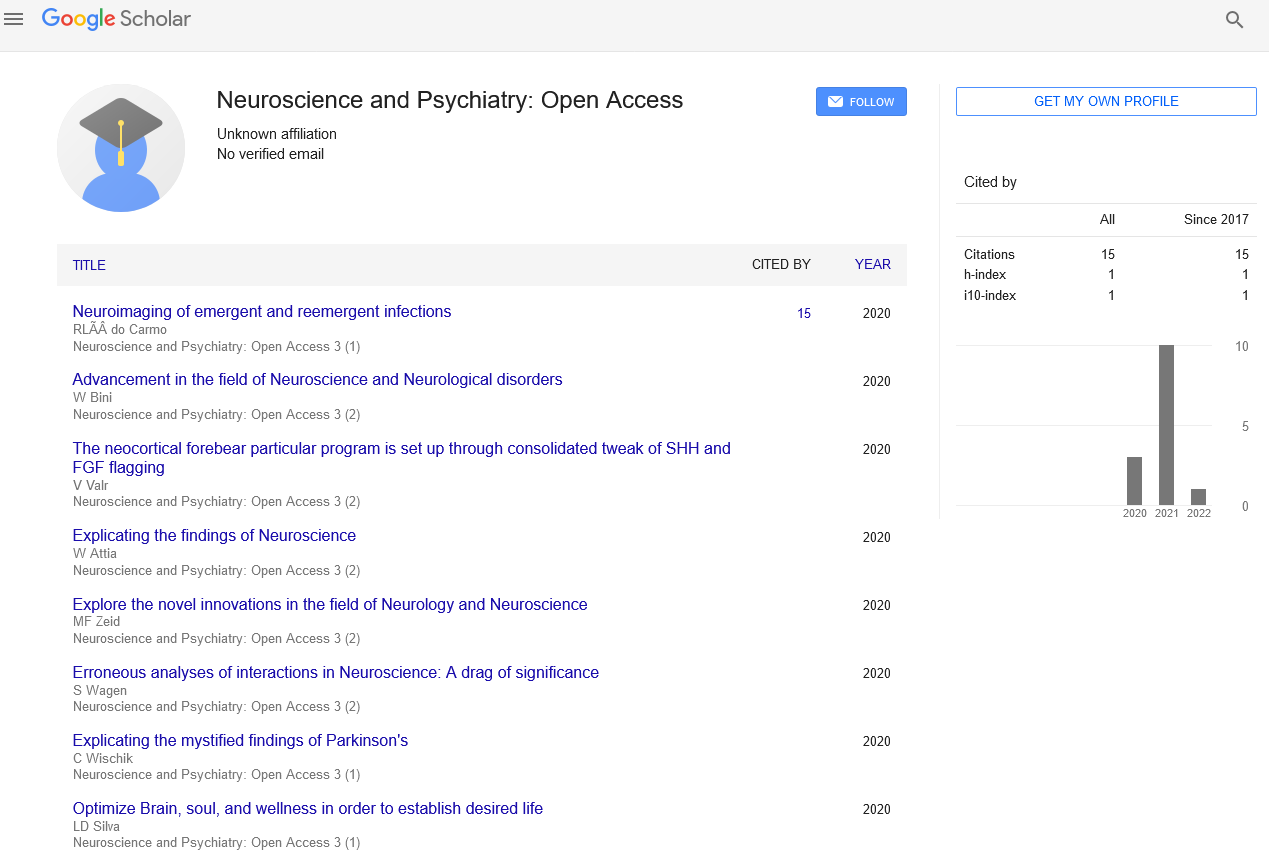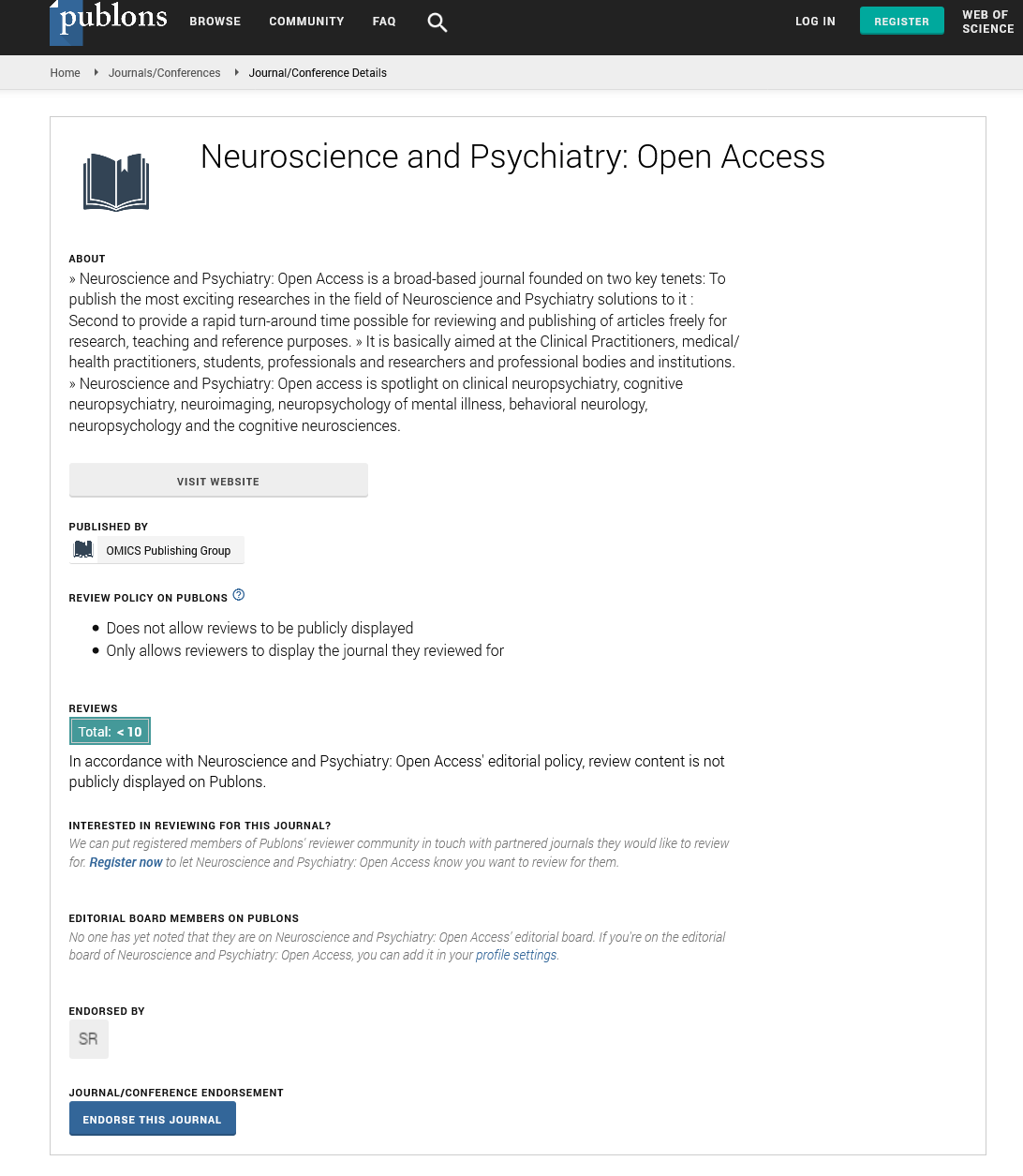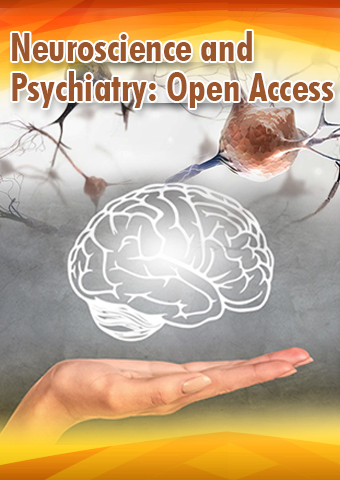Perspective - Neuroscience and Psychiatry: Open Access (2024) Volume 7, Issue 3
Exploring the Intersection of Psychiatry and the Law: Understanding Forensic Psychiatry
- Corresponding Author:
- Chin Eap
Department of Psychiatry, Psychotherapy and Psychosomatics, University of Zurich, Zurich, Switzerland
E-mail: chin.Eap443@chuv.ch
Received: 06-04-2024, Manuscript No. NPOA-24-128827; Editor assigned: 09-04-2024, PreQC No. NPOA-24-128827 (PQ); Reviewed: 23-04-2024, QC No. NPOA-24- 128827; Revised: 03-05-2024, Manuscript No. NPOA-24-128827 (R); Published: 10-05-2024, DOI: 10.47532/npoa.2024.7(3).208-210
Introduction
Forensic psychiatry occupies a unique and complex niche within the field of mental health, where psychiatric expertise intersects with the legal system. As a subspecialty of psychiatry, forensic psychiatry applies psychiatric knowledge and principles to legal issues, including criminal and civil matters. Forensic psychiatrists play a crucial role in evaluating and addressing the mental health aspects of legal cases, from assessing competency to stand trial and mental state at the time of an offense to providing expert testimony in court proceedings. In this article, we delve into the multifaceted realm of forensic psychiatry, exploring its principles, practices, and the critical role it plays in the administration of justice.
Description
Foundational principles of forensic psychiatry
Forensic psychiatry encompasses a range of legal and psychiatric principles that guide its practice and application. Key foundational principles include:
• Legal competency: Legal competency refers to an individual’s capacity to understand and
participate in legal proceedings and make informed decisions about their legal rights and
interests. Forensic psychiatrists evaluate legal competency in various contexts, such as
competency to stand trial, competency to waive Miranda rights, and competency to consent
to treatment. Competency assessments consider factors such as cognitive abilities, factual
understanding, rational decision-making, and the presence of psychiatric disorders that may
impair competency.
• Criminal responsibility: Criminal responsibility, also known as insanity or mental state at
the time of the offense, refers to an individual’s mental state at the time of committing a
criminal act. Forensic psychiatrists assess whether a defendant had the mental capacity to
appreciate the wrongfulness of their actions or conform their behavior to the requirements of
the law at the time of the offense. Insanity evaluations involve a comprehensive review of the
individual’s psychiatric history, mental status at the time of the offense, and the relationship
between psychiatric symptoms and criminal behavior.
• Risk assessment: Risk assessment involves evaluating an individual’s likelihood of engaging
in future harmful or criminal behavior, such as violence, self-harm, or sexual offending.
Forensic psychiatrists utilize standardized risk assessment tools, clinical judgment, and
research evidence to assess risk factors, protective factors, and dynamic risk variables that
may influence an individual’s risk level. Risk assessments inform decision-making regarding
treatment planning, risk management strategies, and legal interventions, such as sentencing
and parole determinations.
• Capacity and guardianship: Capacity assessments involve determining an individual’s
ability to make decisions about personal care, finances, and medical treatment. Forensic
psychiatrists assess decision-making capacity in cases involving guardianship proceedings, advance directives, and surrogate decision-making for individuals with cognitive
impairments or psychiatric disorders.
Capacity evaluations consider the
individual’s understanding of relevant
information, appreciation of consequences,
ability to communicate preferences, and the
presence of impairments that may affect
decision-making capacity.
Practices and applications of forensic psychiatry
Forensic psychiatry encompasses a range of clinical and consultative services aimed at addressing legal issues involving mental health. Key practices and applications include:
Forensic evaluation: Forensic evaluations involve comprehensive psychiatric assessments conducted to address specific legal questions or issues. Common types of forensic evaluations include competency evaluations, criminal responsibility evaluations, risk assessments, mitigation evaluations, and evaluations for civil matters such as personal injury claims, disability determinations, and child custody disputes. Forensic psychiatrists utilize clinical interviews, psychological testing, collateral information, and review of relevant records to inform their evaluations and conclusions.
Expert testimony: Forensic psychiatrists provide expert testimony in legal proceedings to educate judges, juries, attorneys, and other stakeholders about psychiatric issues relevant to the case. Expert testimony may involve explaining complex psychiatric concepts, interpreting evaluation findings, offering opinions on legal standards, and providing expert opinion on matters such as mental state at the time of the offense, competency, and risk assessment. Effective expert testimony requires clear communication, impartiality, and adherence to professional ethics and standards.
Consultation liaison: Forensic psychiatrists serve as consultants to legal professionals, law enforcement agencies, correctional facilities, and other stakeholders involved in legal matters with mental health implications. Consultation liaison services may involve providing case consultation, conducting forensic evaluations, advising on risk management strategies, and offering guidance on mental health law and policy. Forensic psychiatrists collaborate with multidisciplinary teams to address complex legal and mental health issues and ensure that individuals receive appropriate care and treatment within the legal system.
Treatment and rehabilitation: Forensic psychiatrists play a role in the treatment and rehabilitation of individuals involved in the legal system, including incarcerated individuals, forensic psychiatric patients, and individuals on community supervision. Treatment approaches may include psychopharmacology, psychotherapy, cognitive-behavioral interventions, substance use treatment, and rehabilitation programs tailored to the individual’s clinical needs and legal status. Forensic psychiatrists collaborate with correctional and mental health professionals to provide comprehensive care, promote recovery, and reduce recidivism among forensic populations.
Emerging trends and innovations in forensic psychiatry
Advances in technology, research, and policy have led to emerging trends and innovations in forensic psychiatry. Key trends include:
• Neuroimaging and biomarkers: Advances in
neuroimaging techniques, such as functional
Magnetic Resonance Imaging (fMRI) and
Positron Emission Tomography (PET), hold
promise for elucidating the neurobiological
underpinnings of psychiatric disorders and
informing forensic evaluations. Neuroimaging
biomarkers may provide objective measures
of brain function, structure, and connectivity
relevant to legal issues such as competency,
criminal responsibility, and risk assessment.
While still in the early stages of development,
neuroimaging techniques have the potential
to enhance the precision and validity of
forensic evaluations in the future.
• Genetics and genomics: Research in
genetics and genomics is shedding light on
the genetic underpinnings of psychiatric
disorders and their implications for forensic
psychiatry. Genetic factors may influence
susceptibility to mental illness, treatment
response, and risk of adverse legal outcomes.
Genetic testing and pharmacogenomic
profiling may inform forensic evaluations
and treatment planning, providing insights
into the biological basis of psychiatric
disorders and guiding personalized
interventions for individuals involved in the
legal system.
• Tele psychiatry and remote evaluations: Tele psychiatry and remote evaluation
platforms offer opportunities to expand access to forensic psychiatric services,
particularly in underserved or rural areas.
Tele psychiatry enables forensic evaluations,
expert consultations, and treatment delivery via secure videoconferencing platforms,
overcoming barriers such as geographic
distance, transportation limitations, and
resource constraints. Remote evaluations
may enhance efficiency, cost-effectiveness,
and accessibility of forensic psychiatric
services while maintaining standards of
quality and confidentiality.
• Trauma-informed approaches: Trauma-informed approaches recognize the pervasive impact of trauma on individuals involved in the legal system and integrate trauma-sensitive principles into forensic evaluations and interventions. Trauma-informed care emphasizes safety, trust, collaboration, and empowerment, acknowledging the role of trauma in shaping behaviors, coping mechanisms, and legal outcomes. Trauma-informed forensic evaluations consider the effects of trauma on mental health, functioning, and behavior and provide recommendations for trauma-informed interventions and support services.
Conclusion
Forensic psychiatry occupies a vital role at the interface of mental health and the legal system, addressing complex legal issues with psychiatric expertise and evidence-based practices. By applying principles of psychiatry to legal matters, forensic psychiatrists contribute to the administration of justice, protection of individual rights, and promotion of public safety. As the field of forensic psychiatry continues to evolve, embracing advances in neuroscience, technology, and trauma-informed care, it holds promise for enhancing the accuracy, fairness, and effectiveness of legal proceedings involving mental health issues. With a commitment to ethical practice, interdisciplinary collaboration, and continuous professional development, forensic psychiatry remains dedicated to upholding the principles of justice, integrity, and mental health for all.


